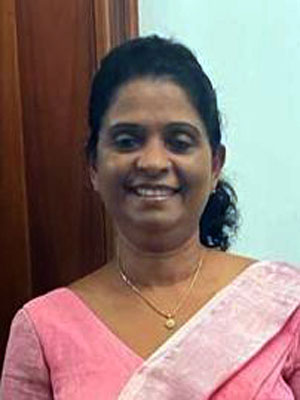News
Home-based care takes off successfully

Dr. Malkanthi Galhena
A major success story in Sri Lanka’s response to the COVID-19 pandemic has been the home-based care system for asymptomatic (without symptoms) and mildly symptomatic positive patients.
It is formally known as Patient Home Isolation and Management Systems (PHIMS).
The system was piloted in the Kalutara district on June 7 and rolled out to the Western Province (Colombo and Gampaha districts) and finally across the country three months ago.
In the nearly five months (June 7 to November 4) the system has been working at ground level, the proof of success lies in the undeniable numbers:
- The total number of COVID-19 patients so far is close to 550,000 (from the beginning of the pandemic).
- The number who have been/are under home-based care – 104,246 patients
- The number admitted to hospital from home-based care – 1,611
- The number of active patients in home-based care currently – 4,757
- The number of patients in home-based care who have been successful treated – 97,377
- The number of deaths while in home-based care – 1
The brainchild of the Director-General of Health Services, Dr. Asela Gunawardena, the Sunday Times understands that the most significant contribution of the home-based care system was drastically reducing the number of COVID-19 patients who were overwhelming the hospital facilities and burdening the exhausted healthcare staff.
The home-based care system is being implemented in a patient-centred manner using the family medicine approach, it is learnt. The 600 Medical Officers who have been trained to deliver home-based care effectively have been trained and are being guided by Consultant Family Physicians.
“Family Physicians trained the medical teams, guided and supervised the management of these patients while at home and took decisions on when a patient needed to be admitted to hospital,” said Clinical Technical Lead of the Home-based Care System and Consultant Family Physician, Dr. Malkanthi Galhena.
She reiterates that the Family Physicians get an in-depth knowledge of the patients under their care and tailor-make the management to fit the patient, while taking into account the family’s needs as well.
“We play an active part in reducing the anxiety not only of the patient but also the family which is quite common with regard to COVID-19,” says Dr. Galhena, explaining that they instil confidence and reassurance in the patient that the medical team is “there” for them.
Under the home-based care system, the patient is closely followed up for 14 days and before “discharge” from the system, the patient and family are armed with knowledge about Post-COVID-19 issues and advised to report to a doctor without delay if they have symptoms.
As soon as a patient is enrolled in the home-based care system, it is the doctor who carries out the initial assessment who looks after the patient until discharge from the system. All these are telephone consultations carried out in the language (Sinhala, Tamil or English) the patient is comfortable in.
Earlier, though patients got registration in the home-based care system through the Medical Officer of Health (MOH) in their areas, now they can directly register by dialling: 1390.
“This ensures continuity of care,” says Dr. Galhena, walking the Sunday Times through the process of advising patients on isolation to prevent infecting family members, taking note of the minor symptoms of a patient and detecting red flags which could lead to complications to ensure that the patient does not descend into severe disease and die.
The doctors also manage these patients with both pharmacological and non-pharmacological measures, advising them on adequate rest, fluid and nutrition intake.
The system is clued into the ambulance service so that if a patient needs admission to hospital, everything is in place.
These medical teams have also advised families on how to prevent illness and busted myths and fake news about vaccines, encouraging all eligible people to take the jabs.
Home-based care has reduced the load on hospitals and healthcare staff, while paving the way for cost-effective management of patients, saving costs for the patients and also the government.
With a major feather in the cap of the home-based care system being the accolades it has drawn from the World Health Organization (WHO), those who have put the shoulder to the wheel to make it a success are the Director-General (DG) Dr. Gunawardena; Deputy DG (Medical Services I), Dr. Lal Panapitiya; the MOHs; the Regional Directors of Health; the Government Medical Officers’ Association (GMOA); and the vital cog in the wheel 23 Consultant Family Physicians and 67 Senior Registrars and Registrars in training in family medicine.
The near future opens up, as they look forward to managing Post COVID-19 Syndrome.

